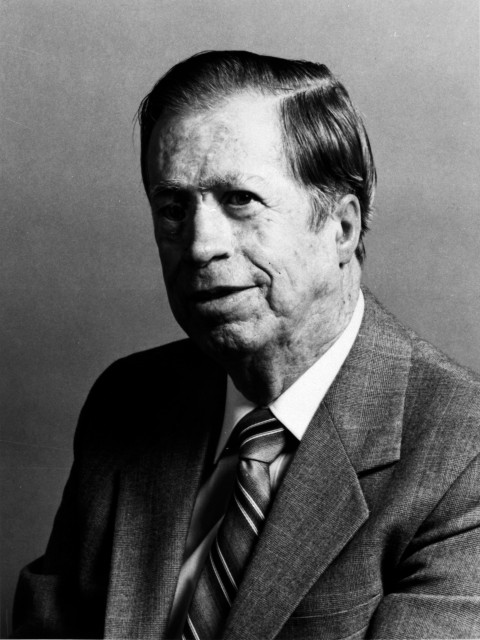Robert Bruce Merrifield
1921-2006

In the 1960s Bruce Merrifield developed the solid-phase technique that revolutionized peptide synthesis. The peptide chain is assembled while one end is chemically anchored to an insoluble, inert polymer. All operations are automated. The reactions occur in a single vessel, with reagents and wash solvents automatically added from reservoirs by mechanical pumps. Using this technique Merrifield synthesized the nonapeptide bradykinin in just 27 hours, and in 1969 he synthesized ribonuclease, the first enzyme to be prepared synthetically from its amino acid components (124 amino acid residues). Prior to Merrifield's time, using conventional reactions in solution, peptide synthesis was exceedingly tedious and, for very large peptides, virtually impossible. For his work on peptide synthesis, Merrifield received the 1984 Nobel Prize in Chemistry. The solid-phase technique has been adapted to other biologically important polymers, including carbohydrates and nucleic acids.
Merrifield was born in Texas but grew up in California. His B.A. and Ph.D. degrees were obtained at UCLA. In 1949, he joined the staff of the Rockefeller Institute for Medical Research, later to become the Rockefeller University, where since 1992 he has been Professor Emeritus. His many honors besides the Nobel include the ACS Award for Creative Work in Synthetic Organic Chemistry (1972), the Royal Society of Chemistry Medal (1987), the ACS Hirschmann Award in Peptide Chemistry (1990) and the Glenn T. Seaborg Medal, UCLA (1993).
Location in chemistry building: First Floor; West Wing South Wall; Sequence 6
Source: Professor Merrifield